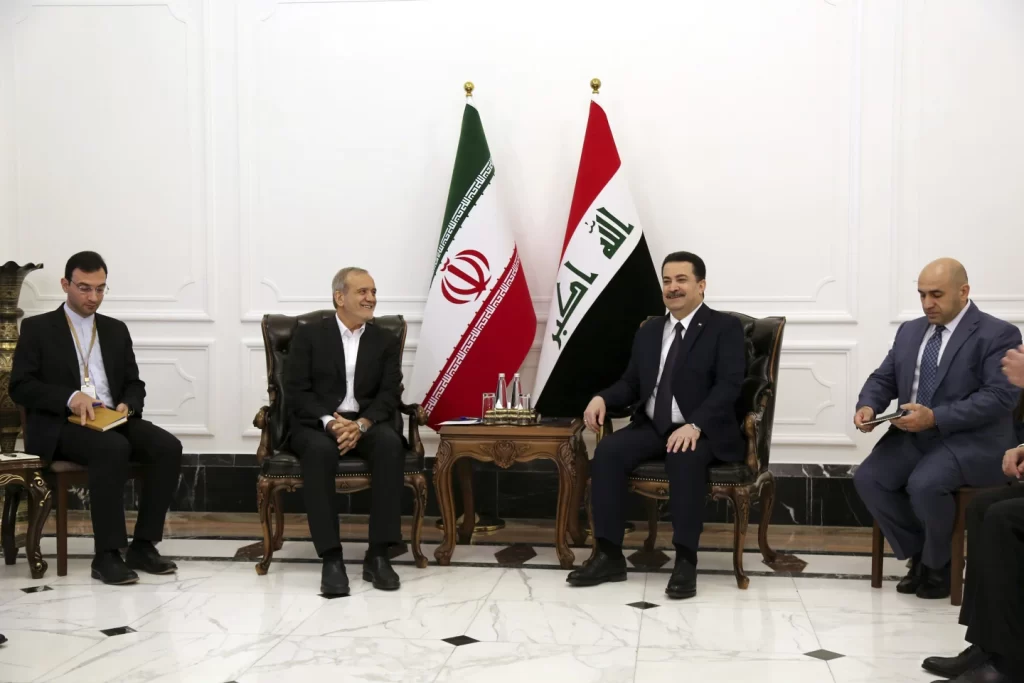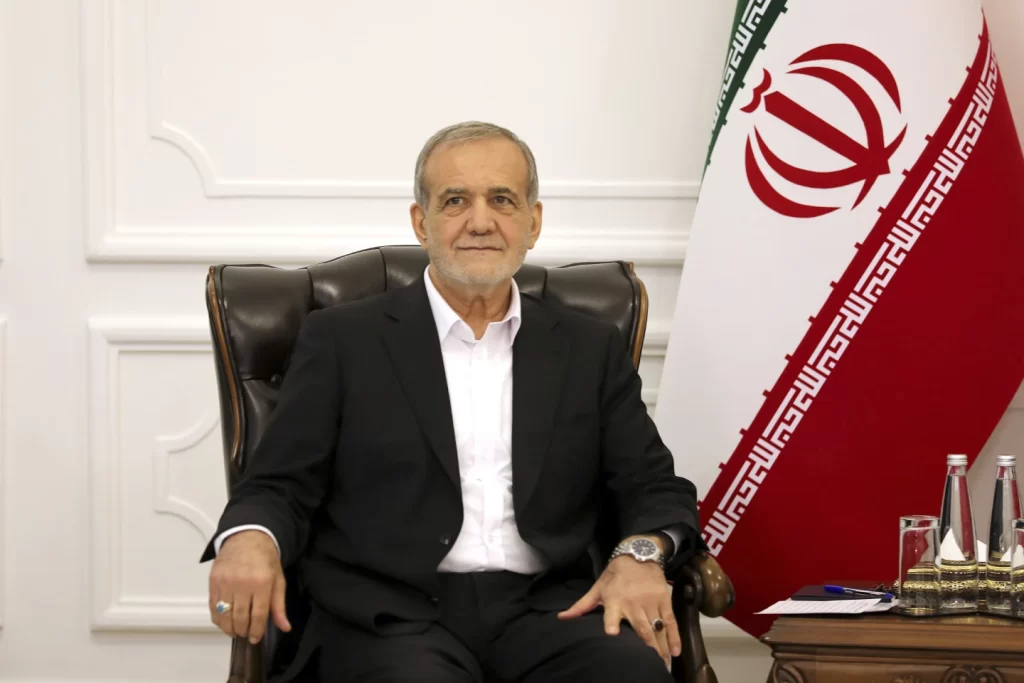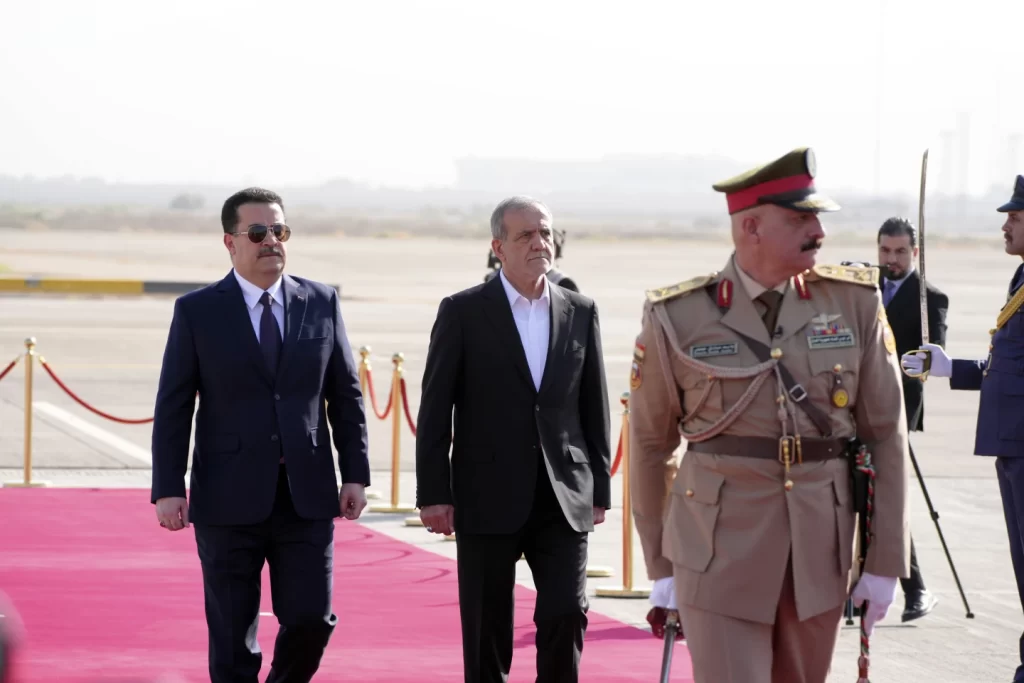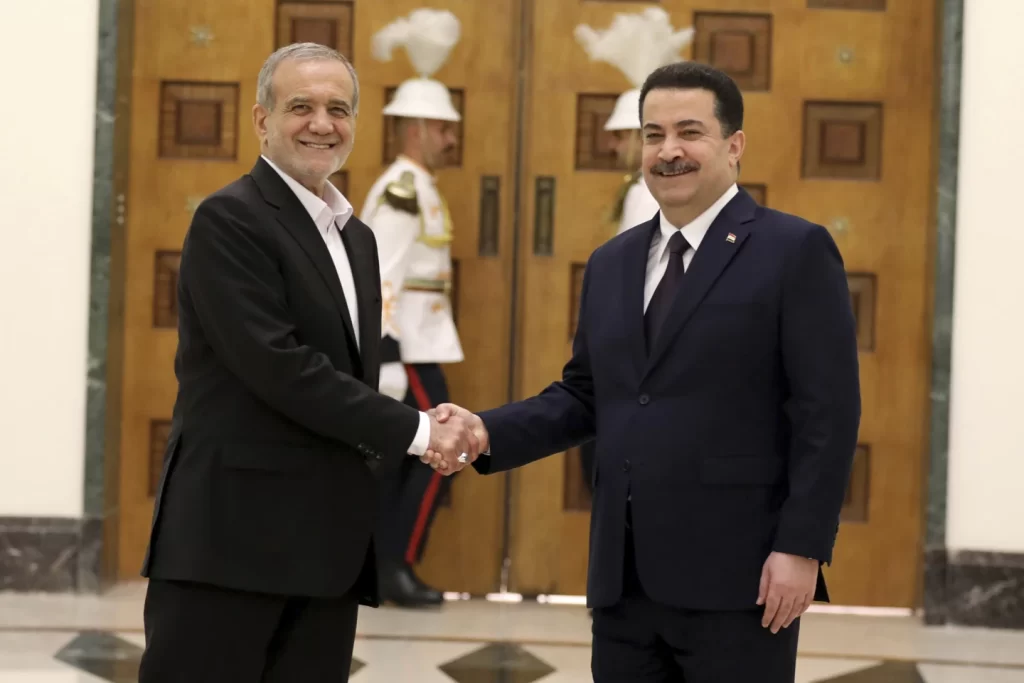Iranian President Masoud Pezeshkian launched a scathing critique of Western nations on Wednesday, accusing Israel of “committing massacres” in Gaza using European and American weapons. The remarks came during his first official visit abroad to Iraq, aimed at reinforcing Tehran’s ties with Baghdad amidst escalating regional tensions.

Speaking in the Iraqi capital, Pezeshkian said, “The Israeli entity is committing massacres against women, children, young men and elderly. They bomb hospitals and schools.” He emphasized that “all these crimes are being committed by using European and American ammunition and bombs,” though he did not provide specific evidence for these claims.
The Iranian leader’s visit comes at a critical time for both nations. For Iran, the relationship with Iraq remains crucial for economic, political, and religious reasons, particularly since the U.S.-led invasion in 2003 that toppled Saddam Hussein. Iraq, meanwhile, is attempting to balance its ties with Iran, which supports powerful Shiite militias in the country, and its relationship with the United States, which maintains 2,500 troops in Iraq to combat remnants of the Islamic State group.

The visit was preceded by an explosion near Baghdad International Airport on Tuesday night, targeting a site used by the U.S. military. While no casualties were reported, the U.S. Embassy later described it as an “attack” on the Baghdad Diplomatic Services Compound, an American diplomatic facility, and stated they were “assessing the damage.”
During a joint news conference with Pezeshkian, Iraqi Prime Minister Mohammed Shia al-Sudani announced the signing of 14 memorandums of understanding to boost bilateral relations. Al-Sudani also pledged that Iraq’s airspace would not be used for attacks on Iran, an apparent reference to potential Israeli operations.
Pezeshkian’s itinerary includes visits to Shiite shrines in the holy cities of Karbala and Najaf, as well as inspecting a railroad project linking the southern city of Basra to Iran and Irbil, the capital of Iraq’s semi-autonomous Kurdish region.

The visit occurs against a backdrop of ongoing regional tensions. Iran has conducted missile strikes within Iraq over the past six years, targeting Kurdish militias, U.S. forces, and alleged Israeli sites. In April, Iran launched an unprecedented direct attack on Israel, firing missiles and drones over Iraqi airspace in retaliation for a suspected Israeli strike on an Iranian diplomatic compound in Damascus.
Iraq’s dependence on Iranian natural gas for its electricity needs underscores the importance of maintaining close ties, despite U.S. sanctions targeting Tehran’s nuclear program.
The continued presence of U.S. troops in Iraq remains a point of contention for Iran. Since the outbreak of the Israel-Hamas war, Iraqi militias allied with Iran have targeted U.S. forces, leading to retaliatory American airstrikes. Iraqi politicians continue to debate whether to support the ongoing presence of American troops in the country.

Pezeshkian’s visit coincides with new sanctions announced by the United States and Britain against both Moscow and Tehran, accusing Iran of supplying short-range ballistic missiles to Russia for use against Ukraine.
As the Israeli-Palestinian conflict continues to escalate, with over 40,000 Palestinians reported killed in Gaza since October 7, according to local health officials, Pezeshkian’s statements reflect Iran’s unwavering support for Hamas and its criticism of Western backing for Israel.
The Iranian president’s visit to Iraq highlights the complex geopolitical landscape of the Middle East, where historical alliances, religious ties, and strategic interests continue to shape regional dynamics and international relations.


